
Adam Atwell, Ed.D.
Adam Atwell is a senior research analyst at Jobs for the Future (JFF) where he conducts research and evaluation aimed at improving the educational and economic mobility of youth and adults. His research focuses on community college learners from historically underrepresented groups, postsecondary career and technical education, and adult learners in postsecondary and adult foundational education. Prior to joining JFF, Adam worked as a faculty member and director of assessment at Mitchell Community College in North Carolina for over ten years. Adam is affiliate graduate faculty at the University of North Carolina at Charlotte where he serves on dissertation committees and teaches doctoral courses in quantitative research methods. Adam is also a visiting lecturer in the Human Capital Education Development program at Clemson University.

James E. Bartlett, II, Ph.D.
James E. Bartlett, II, Ph.D. is a professor of postsecondary education and workforce development. In addition to his faculty role, Dr. Bartlett is the Executive Director of the Association of Career and Technical Education Research. James has held faculty positions at North Carolina State University, the University of South Carolina, and the University of Illinois, Urbana-Champaign. Additionally, he has held research appointments with the Office of Community College Leadership and Research, the National Center for Career and Technical Education Research, and the Belk Center for Community College Leadership and Research.
In the role of PI or Co-PI, James has secured over 15 million dollars of funding to support research and programs in postsecondary career and technical education, community college leadership, and workforce development. Most recently, his work has been dedicated to advancing and developing researchers' focusing on postsecondary CTE.
James has published several journal articles, book chapters, and proceedings in relation to career and technical education, work-based learning, human resource development, improving performance, and enhancing graduate education and researcher professional development. Dr. Bartlett regularly presents his research at national conferences such as the Council for the Study of Community Colleges, the Association for Career and Technical Education, and the American Education Research Association.
Dr. Bartlett has received the North Carolina Lifetime Achievement Award from the Association of Career and Technical Education, the Distinguished and Meritorious Service Awards from the Association of Career and Technical Education Research, the North Carolina State University Mentor Award, and has been recognized for outstanding research with several awards including the Delta Pi Epsilon Outstanding Dissertation Award and the ACTER Outstanding Beginning Scholar Award.
Dr. Bartlett holds his Ph.D. from Louisiana State University in human resource education and workforce development and his Masters and Bachelors degrees in Business Education with concentrations in information technology and labor relations from Indiana University of Pennsylvania. James completed postdoctoral training in marketing research methods and has recently completed the Foundations and Advanced Design Thinking certificate from IDEO University.
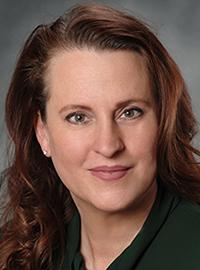
Michelle E. Bartlett, Ph.D.
Michelle Bartlett, Ph.D., is a faculty scholar at Old Dominion University. She leads a doctoral program for community college executive leadership. Michelle has extensive experience designing and facilitating training for post-secondary education, business, and government programs. Michelle creates programs in Executive Leadership, Universal Design for Learning, Accessibility Design in Online Environments, and Instructional Design. She serves as a Professional Development Trustee for the Association for Career and Technical Education Research and co-founder of the UNITE lab.
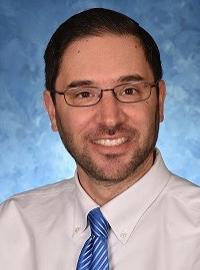
George Bizer, Ph.D.
George Bizer is professor of psychology at Union College in Schenectady, NY. He earned his PhD at Ohio State University and has been at Union since 2005. As a social psychologist, Bizer's interests include attitudes, attitude strength, and individual differences.
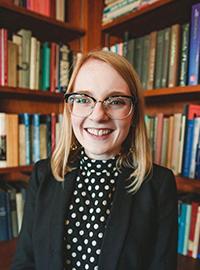
Jennifer M. Blaney, Ph.D.
Jennifer M. Blaney (She/Her) is an Assistant Professor of Higher Education at Northern Arizona University, where she studies gender equity and college student development in STEM fields. Before joining the faculty at Northern Arizona University, she worked as the Senior Data Manager on the BRAID Research Project, a national study of equity in undergraduate computing. Dr. Blaney's current projects focus on community college pathways as a mechanism for broadening women's participation in computing and other STEM fields, and her work has been supported by the Spencer Foundation and the National Science Foundation. She will be using CCSSE data to explore trends among transfer-aspiring students pursuing computer science over time.
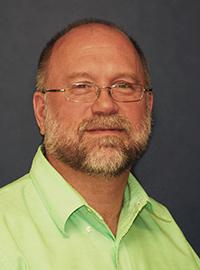
Mike Bohlig, Ph.D.
Mike Bohlig was CCCSE’s Associate Director, Research for many years. Mike has a Ph.D. in Educational Psychology with an emphasis on tests and measurement and with expertise in psychometrics, item response theory, structural equation modeling and longitudinal data analysis. He has extensive experience in applied statistical research in the areas of epidemiology, community-based clinical trials in behavioral research, and pharmaceutical clinical trials which provides him with an excellent understanding and knowledge as well as extensive skills in conducting rigorous scientifically-based research.
Dr. Bohlig supervised the Research and Data Analysis team which is responsible for data management and reporting for CCCSE’s three national surveys. He was also responsible for psychometric analysis of CCCSE’s instruments and statistical analysis of CCCSE’s extensive data base on over one million community college students.
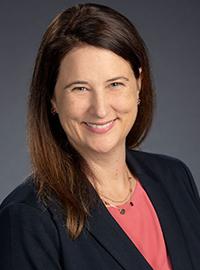
Stephanie Cawthon, Ph.D.
Stephanie W. Cawthon, PhD, is a Professor in the College of Education in the Educational Psychology department, with a courtesy appointment in Special Education. A faculty member since 2007, she gave the University's first commencement address in American Sign Language (ASL) in 2020. Read more here.
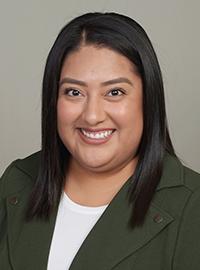
Diana Cervantes Ph.D.
Diana Cervantes Ph.D. is a recent graduate of the Program for Higher Education Leadership and Policy (PHELP) at The University of Texas at Austin where she conducted research for the Free College Equity Lab, the Center for Community College Student Engagement (CCCSE), and Project MALES. Her dissertation research centered Latina/Latino/Hispanic community college students and their racialized experiences with free college policy design and implementation. Diana earned Bachelor’s degrees from the University of Oregon and a Master of Arts in higher and postsecondary education with an emphasis in social/cultural and civic analysis from Teachers College, Columbia University.
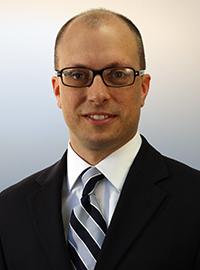
Mark D’Amico, Ph.D.
Mark D’Amico is a professor of higher education at The University of North Carolina at Charlotte. His research focuses on community college student success and the community college role in workforce development. Prior to his faculty role, Mark worked for nearly 15 years in administrative positions including executive assistant to the president of the South Carolina Technical College System. He is the Past-President of the Council for the Study of Community Colleges and former Associate Editor of Community College Review.

Chelsea Durbin
Chelsea Durbin is a doctoral student in the Community College Leadership program at Morgan State University. She is passionate about exploring avenues that enhance the educational experiences of community college students. Her research focuses on two interconnected areas: community college student engagement and dual enrollment participation. With over 16 years in the higher education industry, Chelsea has spent over half her career serving students in the vocational and community college setting. Through her career experiences she has developed a sincere passion for improving student outcomes working in various roles including academic advising, admissions and recruitment, transcript evaluation, degree auditing/planning, financial aid, and retention.
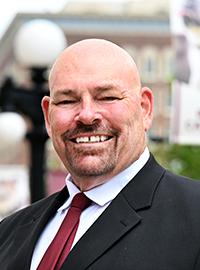
Mark Fincher, Ph.D.
Mark Fincher is an Associate Professor of Community College Leadership at Mississippi State University, working with doctoral and masters students. His research is focused on Higher Education Access and Finance, Working Professional Higher Education, Economic Competitiveness, Students from Collectivist Cultures, and Student Poverty. He has also server as the Vice President for Research and Publication for the Council for the Study of Community Colleges.
Mark's research record includes publications in Academic Leadership, Community College Journal of Research and Practice, Competitiveness Review, Higher Education Policy, Journal of Applied Research in the Community College, Journal of Continuing Higher Education, Journal of Research in Education. He has also proposed and edited a Special Edition of New Directions in Community Colleges on hunger and homelessness in the student body, as well as multiple book chapters and white papers.
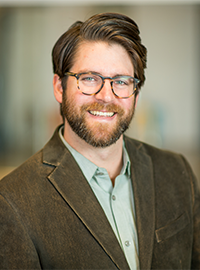
John Fink
John Fink is a senior research associate and program lead at the Community College Research Center (CCRC) at Teachers College, Columbia University. John leads CCRC’s research examining how community colleges and their K-12 and university partners are transforming ineffective and inequitable student transitions from high school to college and career by strengthening dual enrollment programs and improving community college transfer pathways. John’s research has been featured media outlets including Marketplace, EducationWeek, Chronicle of Higher Education, Inside HigherEd,and is published in top-tier education research journals such as American Education Research Journal, Community College Review, Research in Higher Education,and the Journal of Higher Education. John’s work was recognized by the National Institute for the Study of Transfer Students (NISTS) with the Transfer Champion-Catalyst award in 2019, and he is currently the Research Commission Chair and board member of the National Alliance of Concurrent Enrollment Partnerships (NACEP).
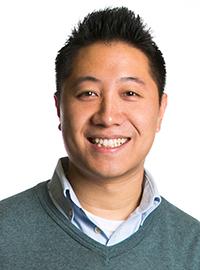
Carlton Fong, Ph.D.
Dr. Carlton J. Fong is an assistant professor in the Graduate Program in Developmental Education and the Department of Curriculum and Instruction at Texas State University. As a scholar-activist at the intersection of educational psychology and higher education, Dr. Fong uses a sociocultural lens to study motivational and affective factors influencing postsecondary student engagement, achievement, and persistence. Specifically, he examines the psychosocial development of community college students.
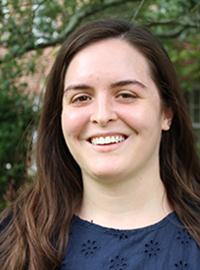
Catherine Hartman, Ph.D.
Catherine Hartman is a postdoctoral research associate at the National Resource Center for The First-Year Experience and Students in Transition. Her research focuses on community college student persistence and engagement, student transfer from community colleges to four-year schools, and linguistically minoritized students’ experiences in higher education.
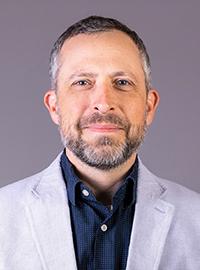
Deryl Hatch-Tocaimaza, Ph.D.
Dr. Hatch-Tocaimaza's research and teaching focuses on community college environments—institutional structures, programming and racialized and embodied encounters—to uncover how they intersect with student experiences to foster equity and liberation in higher education, especially in regard to marginalized global majority students. Dr. Hatch-Tocaimaza was recognized for his research, teaching, and service as a recipient of the Barbara Townsend Early Career Scholar Award by the Council for the Study of Community Colleges (CSCC). He serves on the board of the Community College Journal of Research and Practice, Community College Review, and the Review of Higher Education. He is associate editor of the Journal of Diversity in Higher Education and executive co-editor of Project MALES Practice Briefs, and has co-edited special issues of New Directions in Community Colleges and the Journal of Applied Research in Community Colleges. Dr. Hatch-Tocaimaza received his Ph.D. from the University of Texas at Austin.
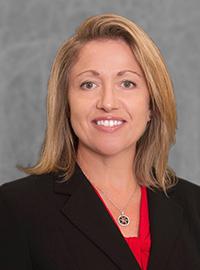
Audrey J. "A.J." Jaeger, Ph.D.
Dr. Audrey J. Jaeger, W. Dallas Herring Distinguished Professor & Executive Director of the Belk Center for Community College Leadership, NC State University. Her research examines relationships and experiences among faculty and students that illuminate issues of transition, access, climate, agency, and community engagement. Dr. Jaeger is an associate editor for Research in Higher Education and on the editorial boards of the Journal of Higher Education and Journal of Higher Education Outreach and Engagement. Dr. Jaeger has received numerous teaching and mentoring awards including the 2016 Association for the Study of Higher Education Mentoring Award and 2015 Council of Southern Graduate Schools Outstanding Mentor Award. Her scholarship and academic contributions have also been recognized by the 2013 Women in Higher Education Achievement Award, 2015 National Association of Student Personnel Administrators Robert H. Shaffer Award for Academic Excellence as a Graduate Faculty Member, 2017 induction into the Academy of Community Engaged Scholarship, and 2018 Champion of Science, Mathematics, and Technology Education, N.C. Science, Mathematics, and Technology Education Center. Dr. Jaeger received her Ph.D. from New York University.
Research interests:
Dr. Jaeger's research examines relationships and experiences among faculty and students that illuminate issues of transition, access, climate, agency, language and community engagement, as well as the ways in which various aspects of the higher education environment affect faculty and students.
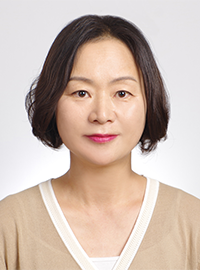
JoHyun Kim, Ph.D.
Dr. JoHyun “Jo” Kim is an Associate Professor in Higher Education Program within the Educational Administration and Human Resource Development at Texas A&M University. She has more than two decades of experience as a faculty member, researcher, and administrator in higher education. Her research focuses on the high school-to-college transition, factors influencing student access and success in higher education, equity in STEM education, and the role of community colleges as linkage institutions, particularly through dual enrollment. Her work examines how underserved student populations—including minority, first-generation, low-income, rural, and non-traditional students—navigate and succeed in higher education. She employs multivariate statistical methods and large-scale data analysis to address these key issues. As a dedicated scholar, Dr. Kim has published in top-tier journals and serves on multiple editorial boards. Additionally, she actively pursues grants and successfully secured several funded projects. She has taught advanced-level statistics, research methods, American community college courses, and community college leadership courses.
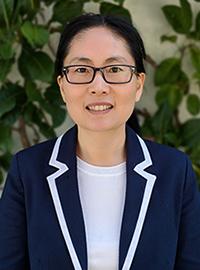
Young K. Kim , Ph.D.
Young K. Kim, Ph.D., is a Professor of Higher Education at Azusa Pacific University. Dr. Kim employs a wide range of advanced quantitative research methodologies to tackle critical questions relevant to equity and diversity in higher education. Her research focuses on inequity in college student experiences and outcomes, college impact for minoritized college students, educational benefits of structural and behavioral diversity, and inequity in STEM higher education. Many of Dr. Kim’s scholarly work have been published in top-tier journals in the field of higher education such as Research in Higher Education, The Review of Higher Education, and Journal of College Student Development. Kim serves on the editorial boards of the Journal of Higher Education and Journal of Diversity in Higher Education.
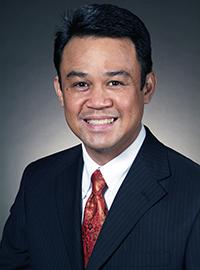
Frankie Santos Laanan, Ph.D.
Frankie Santos Laanan is a professor of education, culture and society, and educational leadership at The University of Utah and Associate Dean for Faculty and Student Affairs. His research focuses on the role and function of America’s community colleges and their impact on individuals and society. His publications address topics including: access and equity for women and minoritized students; educational and career aspirations, adjustment and transition to college, and post-college earnings; and higher education policy related to college access, transfer and articulation, career and technical education, STEM pathways for women and minority groups, and accountability. He is the past President of the Council for the Study of Community Colleges and recipient of the Barbara K. Townsend Early Career Scholar Award. Dr. Laanan received his Ph.D. in higher education and organizational change from UCLA.
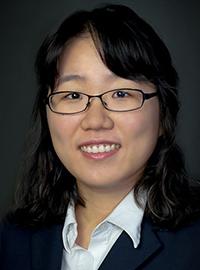
Jungmin Lee
Jungmin Lee is an Associate Professor of Higher Education at the University of Kentucky. She is interested in higher education policy and student success. Her recent studies focus on the role of dual enrollment, financial aid, and college transfer on student retention and degree attainment. She serves on the editorial boards of Innovative Higher Education and the Journal of Student Financial Aid.
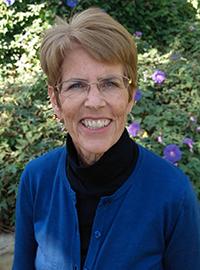
Carol Lundberg, Ph.D.
Carol Lundberg is professor in the Educational Leadership department at California State University. Her research focuses primarily on how classroom engagement and faculty-student interaction are associated with college outcomes for groups that are underrepresented and poorly served in American higher education. Using quantitative designs, she regularly disaggregates findings by race and ethnicity to test findings for particular groups. Existing datasets such as NSSE, CCSSE, and IPEDS are her most common data sources. Another line of her research focuses on how institutions communicate their commitment to diversity and equity, including how those commitments predict student outcomes. She serves on the editorial boards of the Journal of College Student Development and Journal of Student Affairs Research and Practice.
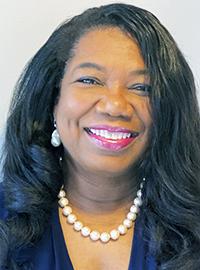
Marva Mack
Marva Mack is a seasoned higher education administrator, fierce student advocate, and innovative Fortune 500 marketing leader. A twenty-year veteran of community college administration, she routinely grows enrollment, retention, persistence, and graduation while enhancing the student experience. Currently pursuing a PhD at Rutgers, School of Public Affairs and Administration, her research interests include public management, stakeholder-driven performance measurements, and the institutional accountability for public institutions to produce quality, equitable outcomes.
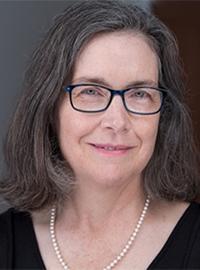
Therese McCarty, Ph.D.
Therese McCarty is John Prior Lewis '41 Professor of Economics at Union College in Schenectady, NY. Her research fields are public sector economics, state and local public finance, and the economics of education. Prompted by a decade spent in academic administration, her research in progress focuses on how institutions can support undergraduates' academic achievement. In particular, she is currently interested in how to increase the benefits of public investment in the GI Bill by providing effective academic support services to veterans.

Jon McNaughtan, Ph.D.
Jon McNaughtan is an associate professor at Texas Tech University where his research focuses on leadership in higher education from multiple perspectives. First, he focuses on the role and experience college presidents. In this vein he has studied how presidents are selected and their communication strategies during time of crisis. Second, he focuses on the role and work of mid-level leaders. His work has identified the importance of empowerment and effective management strategies to increase job satisfaction and commitment in work. His goal is to enhance the practice of leadership in higher education at all levels.
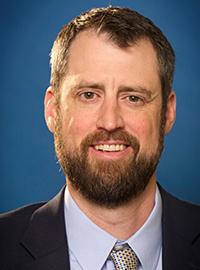
Phillip Morris. Ph.D.
Dr. Phillip Morris is an Assistant Professor with a primary research focus on veteran and military student success and access to higher education. Dr. Morris earned his doctorate in Higher Education from the University of Florida and teaches courses on research methods, measurement, and assessment. Dr. Morris has published in journals such as Community College Review, Community College Journal of Research & Practice, & the Journal of American College Health.
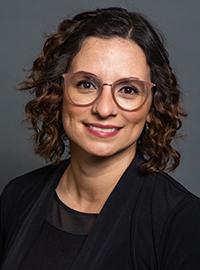
Sindia M. Rivera-Jiménez, Ph.D.
Dr. Rivera-Jiménez's research activities center around exploring the role of engineering communities in driving participatory and transformational change. Her work aims to broaden the participation of minoritized communities by investigating the impact of professional development on shaping organizational cultures. She conducts mixed-method research to enhance practice and policy supporting transfer and graduate students' workforce development at four-year institutions. Dr. Rivera-Jiménez also studies the integration of social responsibility, ethics, social factors, and inclusive environments into the engineering curriculum. She directs the Engineering Communities & Participatory Change (ECoPAC) Research Group, which is dedicated to advancing these research activities. She received the NSF RIEF award to support her new career as an emerging scholar in engineering education research.
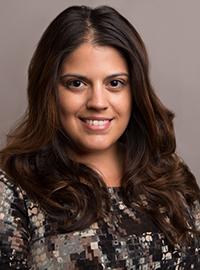
Sarah Rodriguez, Ph.D.
Sarah L. Rodriguez is an Associate Professor of Engineering Education and an affiliate faculty member with the Higher Education Program at Virginia Tech. Dr. Rodriguez's research addresses issues of equity, access, and retention in higher education, with a focus on community colleges, Latina/o/x students, and students in science, technology, engineering, and mathematics (STEM) fields. For her work on community colleges, Dr. Rodriguez received the Barbara Townsend Early Career Scholar Award by the Council for the Study of Community Colleges (CSCC) and gave the distinguished 2019 ASHE-CAHEP Barbara Townsend Lecture.
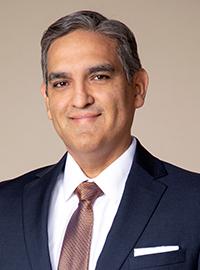
Victor B. Sáenz, Ph.D.
Victor B. Sáenz, Ph.D. is the W. K. Kellogg Professor in Community College Leadership and the Chair of the Department of Educational Leadership and Policy at University of Texas at Austin. He holds courtesy appointments with the Center for Mexican American Studies, Mexican American and Latino Studies, and various other research centers across the University. His current work advances research-informed best practices and policy solutions that improve educational outcomes for underserved students in education, with a special emphasis on boys and young men of color. In 2010 Sáenz co-founded an award-winning initiative at UT-Austin called Project MALES, a multi-pronged effort focused on advancing educational outcomes for male students of color (based within the Division of Diversity and Community Engagement). Under Project MALES he launched a nationally recognized Student Mentoring Program that partners with local schools to connect undergraduate peer mentors with middle school and high school male students. He also co-created a network of K-12 and higher education institutions that form a statewide consortium focused on advancing educational outcomes for this critical student population.
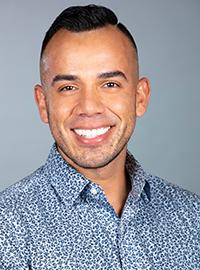
Cristóbal Salinas Jr., Ph.D.
Cristóbal Salinas Jr., Ph.D., is a professor of Educational Leadership and Research at Florida Atlantic University’s College of Education, and is the founder and former Editor-in-Chief for the Journal Committed to Social Change on Race and Ethnicity and currently serves as the Editor-in-Chief for the Journal of Hispanic Higher Education. Dr. Salinas has published more than 80 manuscripts in print, including 6 books, and has delivered over 250 lectures. His prolific writing and research have illuminated the importance of understanding and addressing Latino/a/x student identity and development and made Salinas sought after by media outlets such as CNN, NBC News, NPR, Telemundo, National Review, Chemistry World, Good Morning America, and the Chronicle in Higher Education. The New York Times said his research is “futuristic,” and Diverse Issues in Higher Education said, “Salinas’ a rising star in academe, [and] An expert on Latinx students in college,” in their 2023 special issue where he was named one of the top 15 scholars of the year. A distinguished scholar and advocate, Salinas has been awarded over 30 international and national awards for his commitment to social justice, diversity, equity, and inclusion.
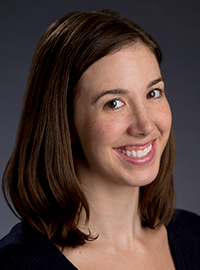
Lauren Schudde, Ph.D.
Lauren Schudde is an associate professor of Educational Leadership and Policy. She studies how to ameliorate social inequities in the United States through higher education policy, with a focus on students attending broad-access institutions like community colleges and regional public universities.
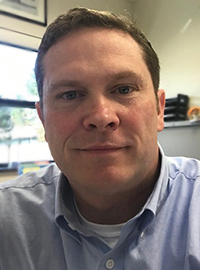
Andrew Stephan
Andrew Stephan is dean of Arts and Sciences at Stark State College in North Canton, OH. As an academic leader, Andrew has focused on creating an academic environment that supports all students by utilizing the strengths of faculty and staff within his area as well as across the college. His work as a community college leader include developmental education redesign, corequisite remediation design, pathway redesign, and equity work in STEM as well as math and English. Andrew has led numerous grants in partnership with local K-12 systems, partner colleges across the United States, and in collaboration with local governments. Prior to his role as dean, Andrew was an associate professor and the department chair of mathematics at St. Charles Community College. His roles as a community college leader, a community college student, and his prior service in the United States Navy, have influenced his areas of research in the community college sector which are veteran success, minority veterans, history of veterans in higher education, and the G.I. Bill.

Aurely Garcia Tulloch
Aurely Garcia Tulloch is a senior research assistant at the Community College Research Center (CCRC), where she investigates effective strategies for supporting historically underserved students in dual enrollment and transfer. Garcia Tulloch has authored several publications, such as CCRC’s “What Do Dual Enrollment Students Want?” report and Inside Higher Ed’s “Stealth Transfer” op-ed. Her research has been featured in Inside Higher Ed and CC Daily, and is published in New Directions for Community Colleges and acknowledged in the Journal of Higher Education. Garcia Tulloch holds an M.A. from Teachers College, Columbia University; a B.S. from Florida Gulf Coast University; and an A.A. from State College of Florida earned through dual enrollment.
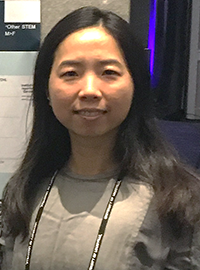
Yi Wang
Yi Wang (she, her, hers) is a doctoral student at the Educational Research, Measurement, and evaluation program at UNC Charlotte. Her research interests are community college students’ engagement pattern, including engagement construct validation, and STEM students who transfer from two-year to four-year colleges. By examining large scale quantitative data set, she explores the high impact practices to serve and engage underrepresented student population to promote inclusion, diversity, and equity. Prior to joining the doctoral program, she had ten years of teaching experience in the higher education setting.
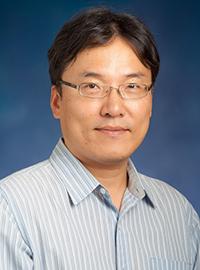
Seung Won Yoon, Ph.D.
Dr. Yoon is a full professor in the Department of Higher Education & Learning Technologies at Texas A&M University Commerce. He is the program coordinator of EdD in Higher Education. Dr. Yoon graduated from the University of Illinois with his degree in Educational Policy, Organization, and Leadership. He wrote 2 books, published more than 50 peer refereed journal articles, and he is now serving as the associate editor of the Human Resource Development Quarterly journal (SSCI-indexed, sponsored by the Academy of Human Resource and Development, published by Wiley). His research and teaching focus on organizational leadership, learning and knowledge sharing, evaluation, social network analysis, and machine learning.
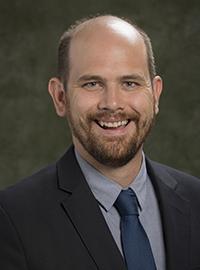
John Zilvinskis, Ph.D.
Prior to teaching at Binghamton University, Associate Professor John Zilvinskis served as a research project associate with the Center for Postsecondary Research at Indiana University, where he worked with mostly data from the National Survey of Student Engagement. His research interests include student engagement, students with disabilities, and high-impact practices.
